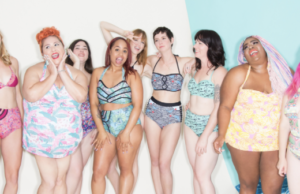Teenagers experience many misconceptions from adults

I am tired. I am tired of being told, “You cannot do this,” “You most definitely can’t do that” and my personal favorite, “You’re 17. You’re just a kid.”
I am exhausted of the treatment that underestimation sweeps over the adults when preaching on what teenagers and young adults can and cannot do. Who else is tired?
Words are buzzing like honey hungry bees, in not only the political world but in schools and churches and workplaces and news stations, etc., because of the Parkland students organizing the March For Our Lives movement.
It’s not a gun problem, they all say. It’s that we are the problem.
We need to be nicer to each other, care about each other and do something to help the youths’ mental health state, and I agree that we do need to be better to others, treat everyone with respect and finally get some damn funding for mental health across the country.
But if that is the case, why do I and plenty of others scroll through the platforms of social media to stumble across memes, Twitter accounts, Facebook posts, Youtube videos, roast sessions on well known talk shows and news stations, based around proving how wrong these kids are when expressing their First Amendment rights.
And, it’s not just the “Parkland kids” getting the hate. It’s all teens and young adults grouped into the species of notoriously self obsessed, lazy and know-it-all robots.
If you want everyone to treat each other with equal rights and respect despite race, gender, religion and ethnicity, why are the adults who don’t agree with change the ones preaching anti-bullying while bullying those who are, dare I say, taking action?
We are told, do this and do that, in order to prepare us for the future in whatever journey we take. Why are we not allowed to question the system set up for us?
Why are we not allowed to move policies, write new laws and make others think too in order to give perspective?
Oh right, we are just teenagers. We’re entitled. We think we know everything about anything, and we are incapable of enabling change. All while being on our cell phones 24/7.
So, to those who say we are always distracted and don’t listen to what you have to say, we are hearing what you preach. We just don’t like it, and you may have created a fire inside of us and uproar of change by not listening. How ironic.
An article written in The New York Times by Lisa Damour, titled “Myths About Teenagers and Risk-taking”, in 2015 talked about myths that overtake teenagers and stereotypical behavior. One myth stated was that adults often times believe that they were a better child than their own children or better than the “average” teenager/young adult.
The article included a study taken by the Centers for Disease Control and Prevention, which compared teenagers nowadays to teenagers and young adults in the early 1990s and showed that our youth behaves much better than let’s say our older siblings or parents.
According to their data, today’s teens are less likely to carry a weapon, smoke cigarettes, try alcohol, binge drink or have sex. They are now more likely to do things such as wear seatbelts or use protection instead of taking these risks.
I am not saying that we are better than anyone, but I want to give some insight on nobody is perfect, not the baby boomers, generation Xers, millennials or gen Z.
We have evolved with technology, communication, culture and societal expectations and views.
Now, I didn’t think I would get away with just a “rant session” article, so let me give a quick history lesson to help give perspective to those who seem close minded on this subject.
Because most African American adults, both men and women, had to stay at their jobs in order to keep food on the table and pay the bills, it was the children who marched in Birmingham in 1963. Who marched? The children.
In 1963, children, teenagers and young adults sprawled along the walls of their community in Birmingham, Ala., to engage in peaceful protests during the civil rights movement led by Dr. Martin Luther King Jr.
According to Biography.com, Janice Kelsey, a child involved in one of the protests, as inspiration leading up to their time of change, “We were told in some of the mass meetings that the day would come when we could really do something about all of these inequities that we were experiencing, and we were calling it D-Day. That was May 2, 1963.”
Thousands of children who wanted to be a voice were trained in nonviolent protest tactics. In the series of protests, hundreds were arrested,, sprayed, hit and attacked.
Despite their unjust treatment, it was the children who wiped the tears aside, stood tall and tread on with pride in the movement they helped create.
This isn’t the only student-led protest that has taken place in our country.
Peaceful protests against the Vietnam war started small on college campuses in order to give a place to express concerns and give opinions. Activists, college students and other youth merged together in order to open the public’s eye on a monumental issue within this war.
The small protests gained national coverage in 1965 when bombs were dropped in North Vietnam.
After this incident, anti-war marches were organized and led by students. Who? By students. Many of them started and led by the Student for Democratic Society (SDS), according to History.com.
One of the most historic and prominent marches led by the youth was Oct. 21, 1967 when 100,000 people stood at the Lincoln Memorial. After protesting that day, 30,000 of that crowd later on continued their march to the Pentagon.
“Student activism played key roles in bringing anti-war ideas to the broader public,” Jessie Kindig wrote in 2008 for the Depts.Washington.edu website.
Movements, opinions and determination hadn’t stopped in the 1960s either.
Locally, a group of high school students broaden schools, parents and community members on how the controversial topic of climate change is taught in classrooms.
CFHS students Tana Gam-Ad, Olivia Fabos Martin and Sarah Stortz helped shape the mindset or create questions on how this subject should be talked about when partnering with Iowa Watch, a non-profit organization that collaborates with high school and college students for high profile news stories.
This story was printed in our local papers but also picked up by many around the state and a few outside of Iowa as well.
You see, it’s a pattern here. We are the ones starting the conversations, these revolutions and movements instigate the curiosity that is much needed in society today. We are the ones who will, one day, change the world.
Once popular singer, songwriter and musician Kurt Cobain said, “The duty of youth is to challenge corruption.”
In no way is this an attack on all adults. Granted, some teenagers and young adults can be entitled, lazy or irresponsible spoiled brats who don’t know how to educate themselves on topics they do not know about, but do not, I repeat, do not put every one of us born in the ’90s and beyond in a box. Do not judge based on stereotypical accusations made by people who are unable to listen and empathize see our ideas.
Published Livestrong.com, writer Morgan Rush states that according to the National Association of Social Works, the findings clearly states that generalizing and stereotyping teenagers and their behaviors can oftentimes scar them with negative effects such as isolation or obscure the conversation of what teenagers and young adults actually need further in life.
Another theory developed by researchers and authors Shelly Helgeson and Dylan Schneider is the youth development theory.
This shows that when creating communities where youth are encouraged to be engaged, it allowed them to adapt to and overcome adversities and also has shown a decrease in traditional problem behaviors.
Both women in the studies and research from 2015, shown on the Texas State Safety Center website, agreed that when youths become engaged in community activities, they develop skills needed to become effective leaders.
“It is clear from the current political and social landscape that youth today crave recognition as equal contributors in shaping a just society,” Helgeson and Schneider said.
Underestimating young people has got to come to an end. Older generations are starting battles, tweets and problems they won’t be around to fix, and who gets the hand me downs? We do. The people who don’t know how to function without taking a Snapchat or sending a tweet every five minutes, right?
We aren’t just kids anymore. Those Parkland students aren’t just everyday high schoolers.
After all, not many almost graduates can say that are verified on Twitter, marched with thousands of people and are heroes to celebrities.
Kids just like the Parkland students are standing up, starting to talk and want to become a voice because they are tired.
We are tired of being shut down, our persistence finally non existent and our opinions being thrown in the trash.
Listen to us. Let us do the talking for once.
American author, civil rights activist, mother, advocate and wife of civil rights leader, Martin Luther King Jr., Coretta Scott King said it best, “The failure to invest in youth reflects a lack of compassion and a colossal failure of common sense.”
Because we are the future teachers, principals, senators, policemen, advocates, presidents, doctors, managers, parents, counselors and community members. We are the future. Instead of trying to tear us down with your words because you preach how to be an “adult,” watch us rise up through our own actions to finally, and truly, make a difference.









You must be logged in to post a comment Login